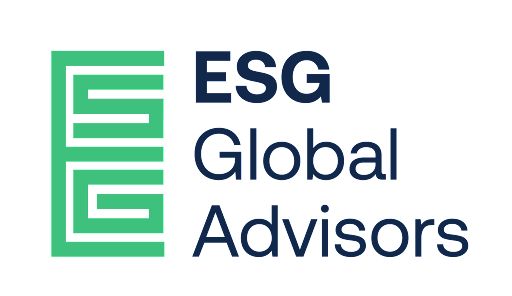Back to the Learning Academy.
Taking Charge of ESG

Based on the experience of our ESG 101 Contributors, we asked which functional area or business unit they believe is best to lead ESG reporting. See their responses and insights below.
Canada Climate Law Initiative
Every single employee plays a role in embedding ESG matters into the overall operations and culture.
At the Canada Climate Law Initiative, we focus on climate-related financial responsibilities and reporting in particular. We engage with boards of directors and trustees because they have a fiduciary duty to oversee climate-related risks, such as adverse weather which can have ramifications on business operations and thus, have a financial impact. We strive to build the capacity of boards to oversee these issues.
While the board is responsible for governing over climate risk, the real reporting work may be done by everyone from CEOs to CFOs, chief sustainability officers (CSOs), financial controllers, and data scientists. General counsel and even marketing teams are also increasingly engaged in due diligence and information disclosure activities because of rising levels of litigation and greenwashing investigations.
Though it may be necessary to recruit specialized personnel, we recommend building the climate capacity of all units, whether legal or engineering, and encouraging teamwork as a climate committee or group. The risks associated with a changing climate and decarbonizing economy are now so vast — and the reporting requirements considerable — that everyone needs to be on board. The climate crisis requires that everyone understand how climate change is related to their work and how they can contribute to shared objectives through their work. It may be necessary to enlist outside subject matter experts, particularly at smaller companies, or providing upskilling opportunities to current staff members.
Assigning climate responsibility to senior leadership and board members and building out a larger climate team demonstrates to investors and customers that your company is taking climate risk seriously. It also gives your company the backing required to make real progress towards climate-related goals. Good governance is essential in effective ESG reporting.

Stratton Craig
There are a few factors that can influence which business unit leads ESG reporting at a company. In our experience it often depends on the maturity of the company, both in terms of size, how embedded sustainability is in the business, and how far it has advanced on its sustainability journey. The scale and nature of its sustainability ambitions and commitments can also determine which teams get involved and who is best placed to lead the reporting effort.
The most advanced companies tend to have integrated teams that cut across sustainability and finance, sometimes creating a new sustainable finance division. As ESG and sustainability reporting draws on inputs from almost every aspect of a business and its operations, the team leading reporting needs to collaborate effectively across functions.
This is essential for ensuring ESG reporting is accurate and data led, while also including a clear and compelling narrative that helps the company tell its sustainability story far and wide. There is a wide range of audiences for an ESG report, from investors and regulators to community stakeholders, NGOs, and employees. The team leading the reporting needs to be able to balance the views and needs of these very different stakeholders while advancing the strategic and sustainability objectives of the company.
So although we often see ESG reporting led by a dedicated sustainability function, they usually establish a working group that brings together representatives from investor relations, communications, finance, operations and more. The faster this happens and the more integrated this team becomes, the more impactful ESG reporting will be.

CPA Canada
We asked CPA Canada's Sustainability Preparer's Working Group for their views on which functional area is best to lead ESG reporting. From a variety of professionals in various functional areas, including both financial reporting and sustainability roles, the resounding response remained the same; collaboration is key!
Until now, ESG, or sustainability, reporting has generally been outside the purview of the finance function, given that the information has been provided on a voluntary basis and has not typically been filed with an entity's regulatory filings. With the issuance of the new IFRS Sustainability Disclosure Standards by the International Sustainability Standards Board (ISSB) and related endorsement by the International Organization of Securities Commissions (IOSCO), it is likely in the future that certain sustainability information will be mandated and form part of an entity's regulatory filings for certain entities in Canada. Further, with the proposed sustainability assurance standards issued by the International Auditing and Assurance Standards Board (IAASB) and the Canadian Auditing and Assurance Standards Board (AASB), sustainability information may also be subject to third-party assurance in due course.
As a result, sustainability disclosures will come under enhanced scrutiny. Finance and accounting professionals have the skill set required to implement sustainability standards; they have experience reading and digesting technical reporting requirements and translating those requirements into timely and understandable disclosures.
The finance team applies rigour in the reporting process to drive accurate, reliable, and consistent disclosures. Because of the nature and complexity of sustainability issues, it will be critical they collaborate across the organization with experts from varied disciplines including sustainability professionals, to assess the materiality of topics and collect the appropriate data, ensuring high quality information for the organization and report users.

Shift Critical International Ltd
Shift Critical International suggests a collaborative approach across various corporate departments to effectively manage ESG reporting and align it with the business strategy. Given the intricacies of gathering precise data while adhering to regulatory standards, ESG initiatives necessitate a multi-departmental strategy. This collaboration enables each department to contribute their insights on optimal data collection methods and identify potential risks in the process.
A dedicated sustainability or ESG team should ideally spearhead this effort, drawing insights from other teams. This team is typically responsible for implementing ESG strategies, identifying which reporting framework(s) to use and can help align ESG reporting with other corporate disclosures. They can also provide review mechanisms, controls, and processes for reporting, and suggest improvements for ESG data collection, management, and analysis. This approach fosters internal ownership of the process and underscores the importance of collaboration across different functional areas and business units to make significant strides in ESG reporting.
For instance, the Finance team, under the leadership of the Chief Financial Officer, is well-equipped to contribute to ESG reporting due to their expertise in cross-functional collaboration, financial planning, data management, and reporting. This team can play a pivotal role in integrating financial and non-financial reporting, thereby crafting a compelling narrative that builds credibility, trust, and competitive advantage among investors, customers, and employees.
The Sustainability/ESG Team manages ESG-strategy and target-setting processes, coordinates the delivery of initiatives and ESG reporting across the organization, and ensures that ESG considerations are embedded into employees' day-to-day behaviours.
Departments like Investor Relations or Corporate Affairs typically publish ESG reports, and creating these reports is a collaborative, cross-functional effort.
Working collaboratively across departments sets the ESG reporting process up for success by ensuring that ESG strategy is supported by – and integrated to – your corporate strategy and business planning processes. It helps to ensure organizational alignment all the way up to the Board level, while helping to identify ESG material issues and strategies to address gaps.

ESG Global Advisors
In our view, there is no "one size fits all" answer to this question. In our experience, ESG and sustainability teams typically take the lead on ESG reporting because they have the subject matter expertise and historical responsibility for this work.
Having said that, ESG disclosures are increasingly linked to finance teams as new standards and regulations call for companies' disclosure of financial information. To report in alignment with IFRS S2 – the new global climate reporting baseline from the International Sustainability Standards Board (ISSB) – a company must disclose information on "how climate-related risks and opportunities have affected its financial position, financial performance and cash flows for the reporting period." This is just one example among many that clearly point to a role for finance teams. Given the ISSB's significant support from capital markets as the global accounting standards for sustainability reporting, finance teams will inevitably play an increasing role.
Although, the question of who leads this work is context dependent and organization specific. ESG teams with a strong track record of leading ESG reports will continue to play a leading role, while finance teams that build sufficient sustainability expertise may also play a leading role. In either case, ESG and finance teams will need to work together.
On balance, we see ESG reporting as a collaborative effort – not only across ESG and finance teams, but across functions and departments. No matter which business unit takes the lead, companies should establish cross-functional committees at the management level with representation from finance, legal, human resources, operations, IT, and ESG/sustainability teams. Overall, it is best practice for CEOs to have full accountability, with oversight from the board.

SOOP Strategies
Assembling an ESG Report is more than simply capturing your company's sustainability commitments and plans, the ESG performance data of a given year, and outlining future plans, trends and challenges you anticipate. The annual reporting process is a check-in of how your company is progressing in its Sustainability Program (if you have one). It determines whether your goals and priorities are still relevant or may need adjusting (if you have decided on priority goals and set them). It is also an opportunity to align (or realign) the company's leadership team on its commitments to sustainability.
For these reasons, it is important to conduct a materiality assessment annually (particularly with today's rapidly changing world) and to rely on those results to dictate the metrics most useful to you.
With the understanding that the ESG reporting process is part of a company's business sustainability strategy, we strongly recommend that the ESG Reporting process be sponsored or led by the sustainability lead of the company, whether that be the CSO or VP Sustainability. It should be handled by the sustainability specialist team carrying out the materiality assessment and data collection process. The ESG reporting process should carry its weight in credibility. Handing it off, for example, to the communications team will produce a different result that doesn't do it justice as it is far more than communicating your commitment and resulting accomplishments to the public.
For smaller-sized companies that do not have a person or team dedicated to ESG, it is best for the CEO to be the project sponsor, and to bring in a third-party team specializing in sustainability. (Tip: having a third-party facilitate your materiality assessment, regardless of the size of your company, will lead to more objective and insightful findings.) An external team of sustainability specialists should bring efficiency to the ESG reporting process in the form of experience and knowledge of the processes, and of the industry in which you are operating. They will have a keen understanding of best practices and pitfalls to avoid, such as guidance on the most appropriate ESG reporting standards, and the bells and whistles that are unnecessary.
While it may not seem important on the surface which team handles the reporting, the way the report is written, the way the data is collected, assembled and analyzed, and the evidence it contains (or doesn't) will flag to experienced readers (i.e., ESG/investment analysts) whether it was written by ESG experts or by someone with an interest in the subject matter but no real depth of experience as it relates to business sustainability.




